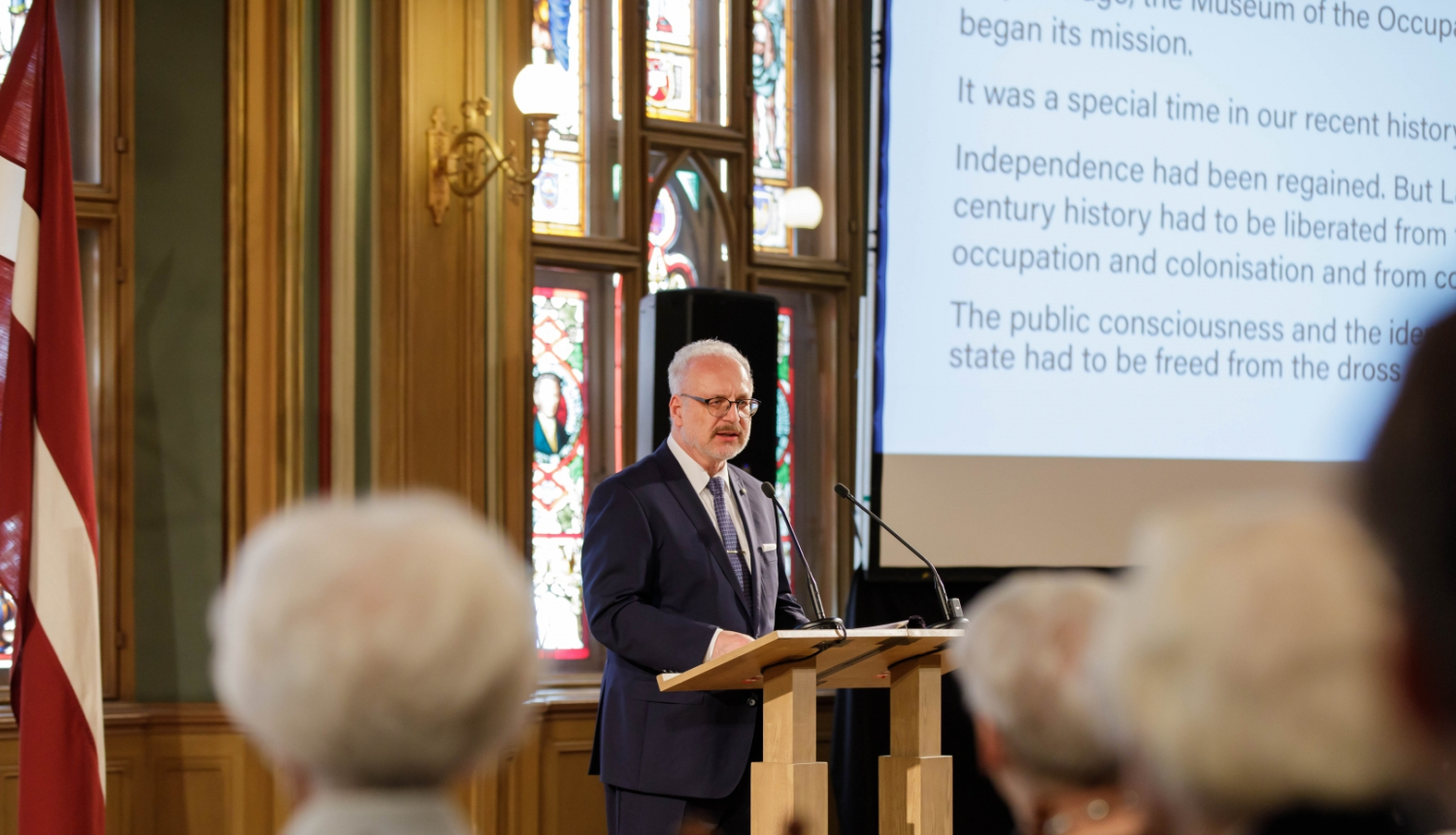Dear Founders and Employees of the Museum of the Occupation of Latvia,
Excellencies,
Distinguished guests,
I
30 years ago, the Museum of the Occupation of Latvia began its mission.
It was a special time in our recent history.
Independence had been regained. But Latvia's 20th-century history had to be liberated from the lies of Soviet occupation and colonisation and from conformism itself.
The public consciousness and the identity of the Latvian state had to be freed from the dross.
II
History is one of the foundations of the identity of a nation and a state. That is why I call the work of the Museum of the Occupation of Latvia a mission. History is always necessary even if it does not seem so in everyday life.
During the Awakening, Latvia's right to regain national independence was based on two arguments: public will and history. Restoring the independence of the Baltic States meant to right the historical injustice, the past crimes of Stalin and Hitler, the USSR and Nazi Germany.
The falsification of history can be used to justify war. Russia's war against Ukraine is not a war for resources. It is the ideological war of the Russian world for a mythical unity of Slavic peoples. But Ukrainians do not want to be brothers to the Russian colonisers. We, the West, must do everything to make Ukraine win!
III
Dear audience,
30 years ago, Latvians in exile knew how important a true history would be for the restored Latvian state.
A huge amount of work has been done. The Museum preserves tens of thousands of eyewitness stories and testimonies. They speak to us.
The Museum honours the suffering of the victims of the Soviet and Nazi occupations. It records the crimes of the occupying regimes and names the criminals.
It tells the story of national resistance to both occupations. This is no less important than telling the story of the victims and the suffering. Because historical awareness offers models of action for the future.
IV
I would like to thank the museum for its contribution to the decolonisation of Latvia. It is from the perspective of decolonisation - which has also acquired a new relevance in the world - that we need to evaluate the remnants of the Soviet occupation. In the last year, visible symbols of Soviet totalitarianism have been toppled. But this work is not yet over.
V
The Museum's work on the international stage is important. The Museum has been seasoned by 30 years of countering Russian disinformation and propaganda. Many Western leaders visited the Museum of the Occupation and saw the same crimes that they now see in Bucha and Irpin. This has helped them to better understand the nature of Russian imperialism.
The Museum's blessed work of building a united European historical memory must continue. This is an opportune time, because Russia's war crimes in Ukraine have woken up a large part of Western society.
VI
Ladies and Gentlemen,
A clear and consistent sense of purpose has permeated the work of the Museum of the Occupation for all these 30 years.
The Museum has changed with the times, developing the skills to tell Latvia's history. The reconstructed museum building gives a new lease of life to the museum's development.
The Museum of the Occupation of Latvia has shaped the worldview of the Latvian people, the self-confidence of the nation.
A sense of history helps a nation to take root.
On behalf of the Latvian state, I thank you for what you have done! I wish the Museum to continue to be creative and civically active! May we succeed in uniting different groups and generations in Latvian Remembrance space! May the story of the occupation of Latvia reach a growing part of the international community!





